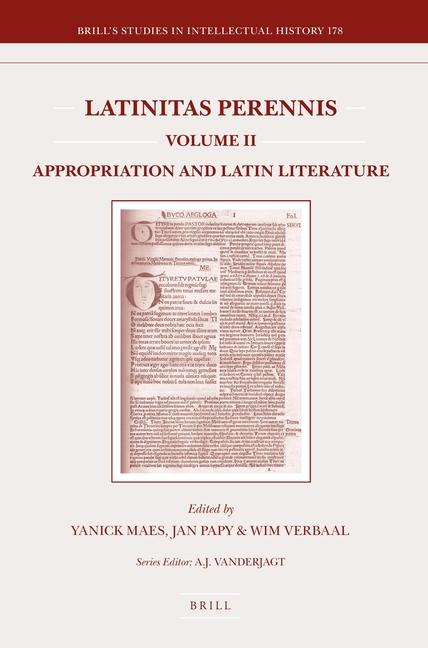
Zustellung: Sa, 09.08. - Fr, 15.08.
Versand in 3-4 Wochen
VersandkostenfreiBestellen & in Filiale abholen:
No cultural phenomenon can remain vital and evolve without a continuous integration of external elements. Instead of reading the process of appropriation in terms of sources or models, the dynamics involved are better understood using more flexible categories such as creative reception, polyphony and dialogue. In every phase of its evolution, in Antiquity, the Middle Ages or (Early) Modern times, Latin literature had to face a double challenge, one from the past, and one from the present: although the models and heritage of the past always remained normative, contemporary demands had to be met too. The contributions in this volume analyze different moments of intercultural negotiation within the long history of Latin Literature.
Inhaltsverzeichnis
1. Continuity Through Appropriation? By Way of Introduction, Yanick Maes PART
I: PROGRAMMING APPROPRIATION
2. Roman Dream Works, Christine Walde
3. Exemplarity: Between Practice and Text, Alessandro Barchiesi PART
II: GENRES OLD & NEW
4. The Language of Grief and the Poetics of Conjugal Mourning: From Euripides (Alcestis, Transl. Buchanan) to Joachim Du Bellay (Tumuli [Poematum Libri Quatuor], 1558), George Hugo Tucker
5. Taking Occasion by the Forelock. Dutch Poets and Appropriation of Occasional Poems, Harm-Jan van Dam
6. Vergil, the Psalms, and New Poetic Genres in Medieval Latin Literature, Gunilla Iversen
7. Latin Culture and Oriental Wisdom, Pascale Bourgain PART
III: LINGUISTICS & STYLISTICS
8. Is there such a Thing as a Latin Epochal Style?, Walter Berschin
9. End Game: Humanist Latin In The Late Fifteenth Century, Christopher S. Celenza Index Nominum
Produktdetails
Erscheinungsdatum
24. Juni 2009
Sprache
englisch
Seitenanzahl
248
Verlag/Hersteller
Produktart
gebunden
Gewicht
566 g
ISBN
9789004176836
Bewertungen
0 Bewertungen
Es wurden noch keine Bewertungen abgegeben. Schreiben Sie die erste Bewertung zu "Latinitas Perennis. Volume II: Appropriation and Latin Literature" und helfen Sie damit anderen bei der Kaufentscheidung.









